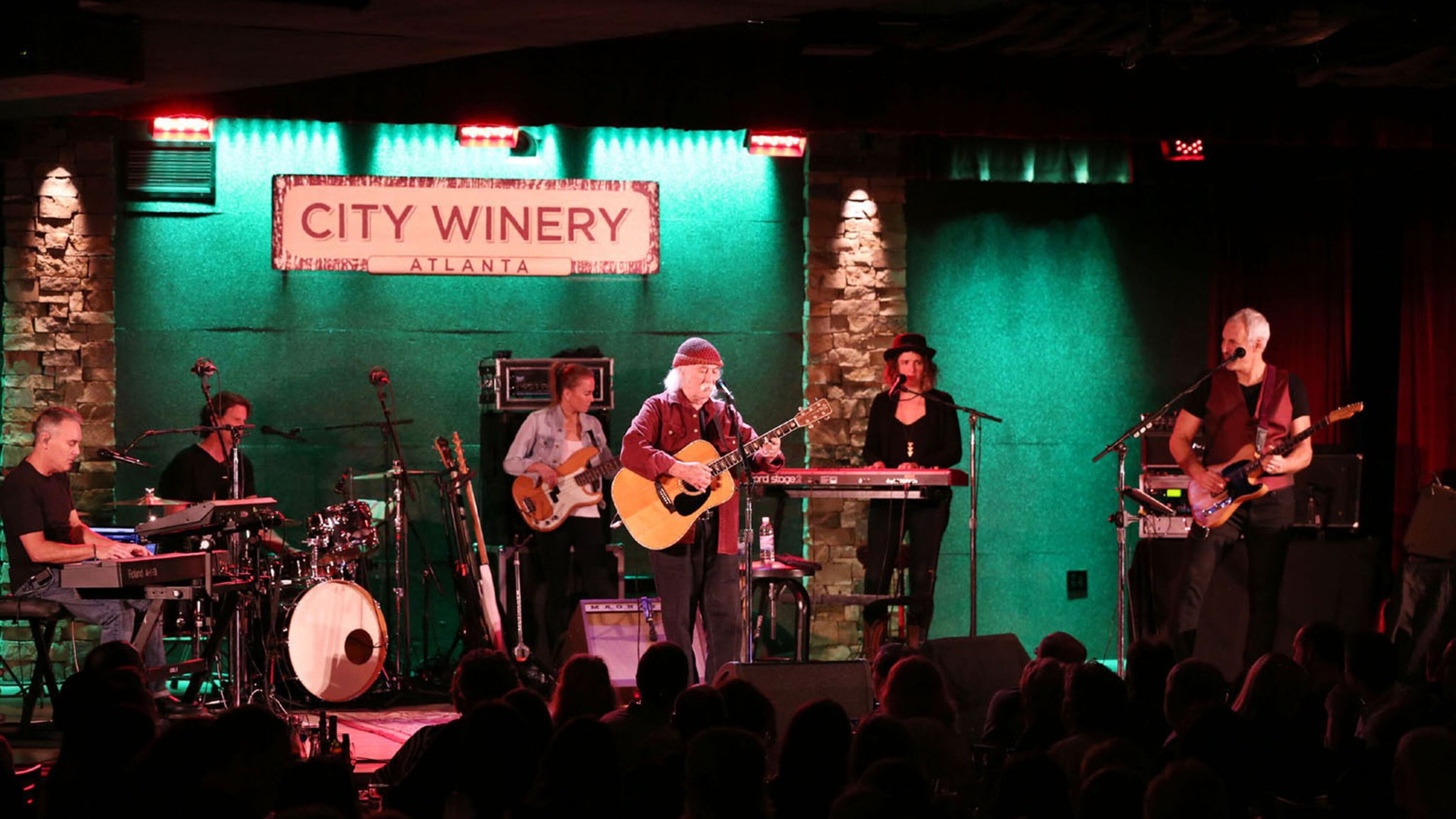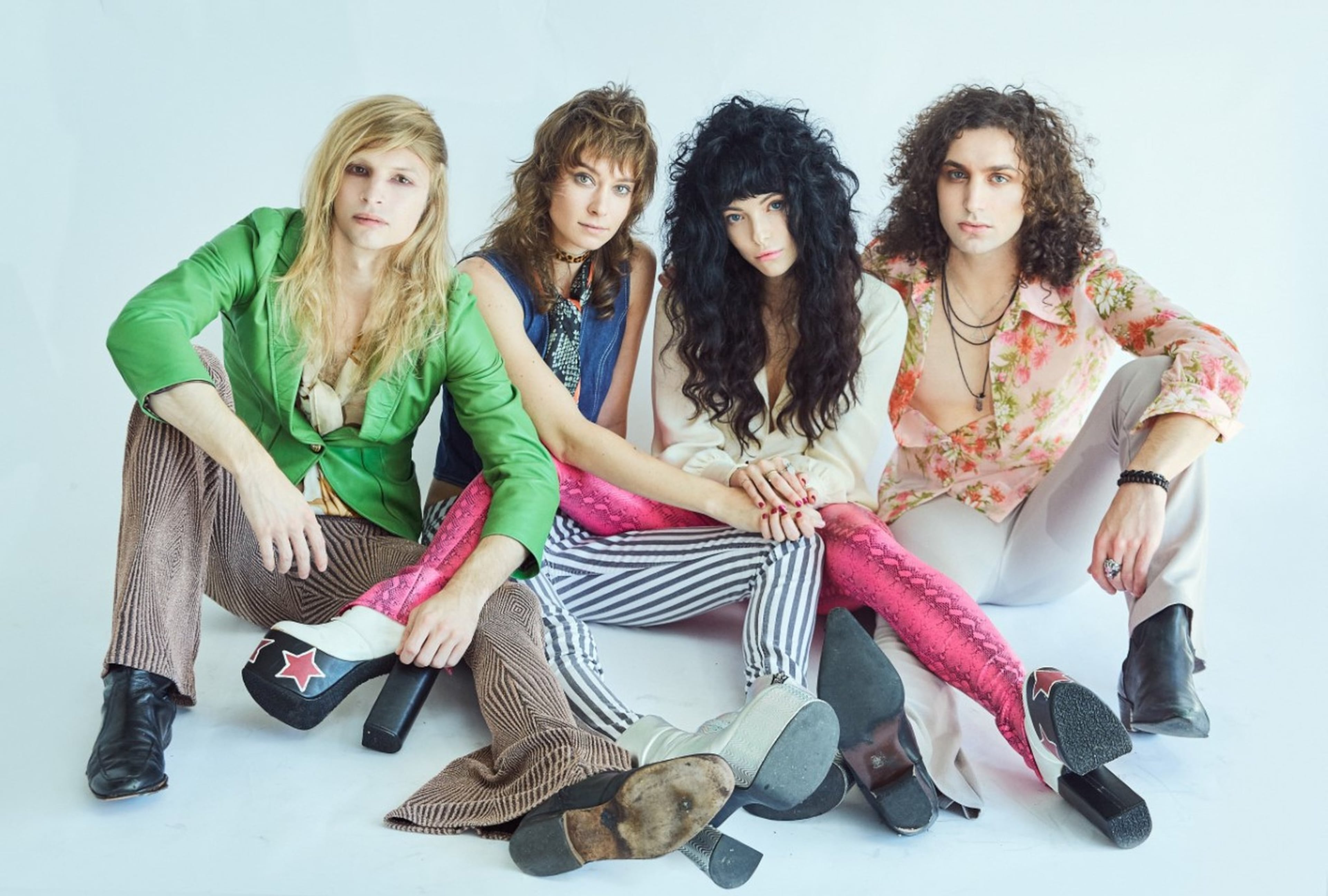Virus effects are ‘devastating’ for local venues, musicians

When David Crosby told GQ magazine earlier this month that if he loses an upcoming summer tour, he'll also likely lose his house, it was a suck-in-your-breath moment for the music industry.
True, Crosby openly talks about having squandered much of his wealth over the years, but this is still a guy with a piece of the Crosby, Stills & Nash catalog and current touring revenue.
If severe financial distress can shake a music legend, what about those whose livelihood depends on hundreds of club and small theater gigs every year — a way of life that is now sidelined indefinitely?
“We make some money from record sales, but about 80-90 percent of what we make is on the road. With shows being canceled, it’s the equivalent of having a pretty decent job and getting laid off,” said Dana Johnson, guitarist and musical collaborator/husband of Atlanta soul singer Avery Sunshine. “It’s like having a small business. We have band members and other people who depend on us. It’s pretty devastating, to be honest. And we know it’s not unique to musicians and artists. If you run a bakery or a barbershop, you’re in the same position.”

Sunshine performs about 150-175 dates per year around the world and was readying a run of shows in Lithuania when the coronavirus pandemic shut down travel and large gatherings.
Like many artists, Sunshine and Johnson have redirected their creative energies onto social media. They've performed a handful of concerts on Instagram and Facebook — most recently last Thursday — and regularly hop online around 3 p.m. daily for a chat with fans from their living room.
Johnson and Sunshine were reluctant to charge fans for the performances. But after their first concert, inquiries popped up about donations, so Johnson connected a cash app ($AverySunshineLIVE) to the feeds for those who want to contribute. (They are thinking about holding more online concerts in the coming weeks.)
Sunshine admits that she experienced anxiety in the first few days of the new world order, but quickly had a revelation.
"I was nervous about what are we gonna do? Then I paused and thought, it's not just us – everybody is going through this. For a moment you have this selfish, 'How am I going to make it?' until the light comes on. That knowledge means we all have to be OK. Everybody has to extend grace. Everybody," Sunshine said.

Atlanta rock band the Starbenders released their second full-length album in February with months of concerts inked to showcase their live prowess.
“(Live shows) were the biggest thing we were counting on to move the needle to get them in front of people, and we can’t tour behind it,” said Nico Constantine, the band’s producer and manager. “This would have been their third tour in Japan, and that’s canceled.”
Likewise, a current tour with Phoenix rockers Doll Skin has been shuttled to November, and an April and May run with The Sounds is in limbo.
“I never want to portray a victim identity, but this is devastating. And you get scared. Are we going to come out the other side of this intact?” Constantine said. “The band has agreed that no matter what, this is what we’re going to do. We’re going to stay strong. A positive mental attitude is going to be the most productive thing. The new currency is going to be everyone’s vitality and health.”
As the pandemic has worsened and calendar dates do not point to specific times that signal a return to normalcy, , MusiCares, the charitable arm of the Recording Academy, established a Covid-19 Relief Fund. Music professionals with at least three years of employment in the industry and/or credited contributions to at least six commercially released recordings or videos are eligible for aid. (Visit musicares.org for more information.)
Some organizations, such as the Atlanta Symphony and Synchronicity Theatre are suggesting that patrons donate any unused tickets so that money already spent becomes a donation.
And the U.S. Senate’s just-passed $2 trillion stimulus bill should benefit musicians forced to cancel recording sessions and concerts due to a provision covering workers “who were scheduled to commence employment” when the outbreak began.
But in the meantime, it isn’t only the artists who are stung by the inability to work. Those in the background – the small venue owners, waitstaff, kitchen crews — are also reeling.
Michael Dorf, founder and CEO of City Winery, which operates an Atlanta location, as well as outposts in New York, Nashville, Washington, D.C., Boston, Chicago and Philadelphia, had to close all of his restaurant/wineries/venues, resulting in pay suspension for about 1,400 employees and a wage reduction for himself as well as the 74 people still on the payroll.
He’s a seasoned entrepreneur, but this pandemic doesn’t respect experience.
“There is no guidebook for running an entertainment organization during a global pandemic,” Dorf said.
Within days of closing the buildings, Dorf established the Employee Relief Fund via GoFundMe to be distributed to all temporarily laid-off employees. About $32,000 has been raised so far — a reasonable amount, but when divided among more than 1,000 people, it can have a diluted impact.
“We’re constantly agonizing as to what to do to keep everyone in the family,” Dorf said.
Amid the shutdown, City Winery has launched twice-weekly wine classes online and is providing curbside pickup (and delivery) for its menu items, as well as delivery and pickup of its local wines.

At Eddie’s Attic in Decatur, co-owner and buyer Andrew Hingley laments the 27 people currently out of work at the venue. He and business partner Dave Mattingly are committed to paying staff until April, even though Eddie’s will lose about 120 shows during a two-month shutdown.
“People are going to have to be massaged back into feeling comfortable in these environments,” Hingley said.
Although Hingley, sensitive to the number of other musicians and venue owners dealing with the same financial complications, was hesitant to publicly solicit donations, Atlantan Lynn Fowler, whose wife Candace Oxendale Fowler started the Facebook page called, "Viral Music – Because Kindness is Contagious," organized a GoFundMe page for Eddie's Attic employees.
About $8,500 has been raised and Hingley is giving bigger benefactors the opportunity to be immortalized in the legendary venue; anyone who donates at least $500 will receive a personalized brick on the side of the Eddie’s Attic stage.
It’s apparent that the recovery for the live music industry will be arduous.
But Sunshine is adhering to a mantra that she shares with fans as a hashtag on her social media posts: “Faith up, fear down.”


